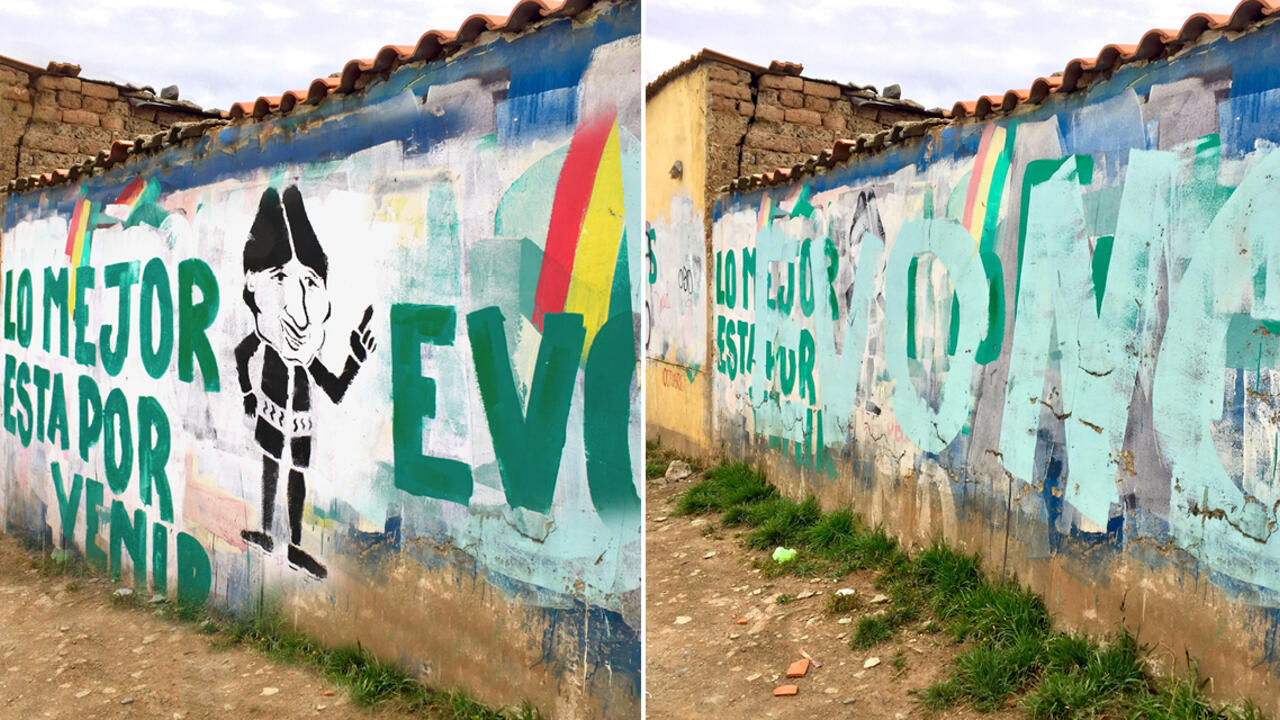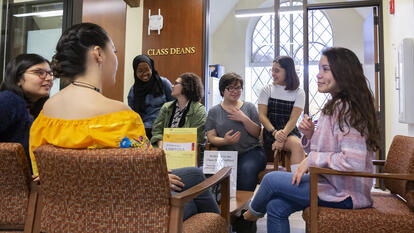Unrest and Uncertainty in Bolivia Explained

In November, Evo Morales, Bolivia’s first Indigenous president, resigned after almost 14 years in power in the face of large demonstrations, led by protesters who accused him of subverting democracy to extend his rule past the two-term limit established in the country’s 2009 constitution. Shortly after Morales stepped down, he fled to Mexico. In Bolivia, protests and violence have followed his resignation. Morales’ departure came on the heels of an October election that saw widespread accounts of voting irregularity, detailed in a recent report filed by the Organization of American States (OAS).
As Bolivia’s political crises continue, Susan Ellison, assistant professor of anthropology at Wellesley, examines why the terms of Morales’ departure are disputed, his impact on Bolivia’s Indigenous population, and democratic debates in the country.
Q: In the wake of Morales’ departure, the question has come up in the press and on social media about whether this was a coup. Can you help us understand the arguments on both sides?
Susan Ellison: This question has provoked ardent debate among Bolivians and others following the protests and violence gripping in the country for the past several weeks. Bolivian colleagues and friends who care deeply about what is happening in their country—as well as those non-Bolivians who have spent years living and working there—disagree about how to interpret recent events. Those who insist on the need to name what has occurred as a coup emphasize the final sequence of events right before Morales issued his resignation, when some police precincts indicated they would no longer be following orders and the military “suggested” that Morales resign. They point to the interim government’s actions, including how acting president Jeanine Áñez maneuvered to assume the presidency, and the actions of her administration since. For example, Supreme Decree 4078 essentially granted impunity to military and police who used deadly force in their confrontations with protesters, although it was later abrogated.
However, many other Bolivian friends, including activists on the left, Indigenous leaders, and feminist critics of the Morales administration, as well as compadres in El Alto and La Paz (where I work), reject using the word “coup.” They do so because they argue that the term erases the past several years that they have been criticizing Morales’ administration for failing to enact the very transformation he promised in his political platform. They further insist on the illegitimacy of Morales’ candidacy for president after he lost a referendum that would allow him to run for an unconstitutional fourth term and cite an OAS-backed report on irregularities during the vote tallies—although that report is similarly contested. They believe their response to these events was a justified popular uprising to remove a president who had lost people’s trust.
Q: Did the Morales administration ameliorate the socio-political exclusion affecting Indigenous Bolivians?
Ellison: Morales ushered in dramatic, substantive changes in Bolivia—changes demanded by Indigenous and other social movements for years. For many Indigenous Bolivians, his election was thrilling, a source of pride and optimism. And, for many people watching around the world, Morales came to represent the possibility of enacting policies that truly favored social and environmental justice. He became a personification of decolonization and substantive inclusion of marginalized Bolivians enacted through the refounding of the country as the Plurinational State of Bolivia with the adoption of a new constitution in 2009.
On the ground in Bolivia, however, things were far messier. Over the past decade, many people who once celebrated Morales—or who were at least hopeful about his election—grew fiercely critical. Those deep disappointments centered around continued extraction-based economic policies and accusations that he was silencing his critics, among them worker and campesino [peasant] unions, Indigenous organizations, and environmental justice advocates seeking to hold him accountable for his administration’s espoused values and political commitments. Many people still support Evo and are mourning his ouster. They fear that a revanchist right will dismantle important gains from the Morales years, even if they were also critical of his presidency. But many of those same people tell me they are resolved to resist any effort to roll back progressive transformations that occurred under Morales—and to push beyond his administration’s shortcomings.
Q: Part of your research is on who sets the terms of democracy in Bolivia. Under Morales, did that dynamic change? If so, how?
Ellison: My book [Domesticating Democracy: The Politics of Conflict Resolution in Bolivia] was born out of a similarly fraught moment—the aftermath of a 2003 uprising in El Alto and surrounding rural hamlets that forced the resignation of then-President Gonzalo (Goni) Sánchez de Lozada after his administration used deadly force to suppress protesters. Foreign funded “democracy assistance” programs subsequently targeted neighborhoods that had been protagonists of that uprising. Donors and national critics alike argued that Bolivian social organizations and movements too often turned to disruptive protests rather than using institutional democratic channels to make their demands known. The aid programs I researched encouraged people to adopt other tactics—namely alternative dispute resolution (ADR)—to redirect their energies toward the negotiation table rather than the streets. But in El Alto, many activists perceived those efforts as an attempt to domesticate or pacify more radical means of demanding justice, characterizing their own efforts as deeply democratic and raising questions about whose interests ultimately were served by ADR. People are interpreting events unfolding in Bolivia right now through the prism of that 2003 uprising. Indeed, another reason why some people may resist characterizing what happened to Morales as a coup is because doing so throws into question how we talk about the events of 2003 and again in 2005, when Goni’s successor (and current presidential candidate) Carlos Mesa also resigned amid popular protests. Ongoing struggles over how to pursue justice, enact Indigenous demands for sovereignty, and grapple with who sets the terms of Bolivian democracy continue, as they did under Morales.
Q: What’s next for Bolivia?
Ellison: Among things to be watching for now is how various social organizations are reconstituting themselves and whether they do so in relation to Morales and his Movement Toward Socialism (MAS) party, even as MAS seeks to promote a new generation of party leaders. Additionally, I’ll be watching for those new elections, how quickly they occur, under what circumstances, and what the interim government does in the meantime. Finally, it is imperative to document and investigate the deaths and injuries that have already occurred and to insist that re-establishing social and political order does not justify further recourse to violence.
Photo: A wall in El Alto, Bolivia that was graffitied with Pro-Evo Morales paint and later painted over by those who opposed him running for President for a fourth term.



